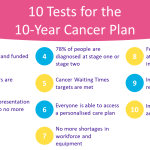A funding boost for early phase clinical trials has been announced by the NIHR (National Institute of Health Research. Now – this may seem remote from clinical research which focuses on brain tumours. But it is a significant and important investment – in this case £161 million to fund 28 clinical research facilities.
Early-stage clinical trials are the bridge between the laboratory and the clinic. So they translate the research into the clinic and are therefore considered to be experimental. They include studies that test new treatments in patients for the very first time (called first-in-human trials) through to phase 2 trials which explore safety and efficacy of the treatment.
More info about clinical trials can be found here.
 This might sound like this research is far removed for the day to day experience of living with a brain tumour, but it is important. Not only is this enabling the UK to be global hub for life sciences and so therefore will support, and attract, worldwide research for cancer, but in order for us to make any progress in developing treatments for brain cancer, we need to have the building blocks in place which to unite the brightest minds in cancer research to discuss and debate some of the greatest issues in the field. We’re working with investigators looking at adaptive trial design and ensuring that applications are top notch.
This might sound like this research is far removed for the day to day experience of living with a brain tumour, but it is important. Not only is this enabling the UK to be global hub for life sciences and so therefore will support, and attract, worldwide research for cancer, but in order for us to make any progress in developing treatments for brain cancer, we need to have the building blocks in place which to unite the brightest minds in cancer research to discuss and debate some of the greatest issues in the field. We’re working with investigators looking at adaptive trial design and ensuring that applications are top notch.
Clinical trials are a bit like building towers – do you build one tower and put all your efforts into one building block. What happens if it falls down? Or do you build multiple, smaller towers, adding blocks as you go along, involving more people, mitigating risk and influencing more? This is the point we are at with trial design. The traditional model of trials hasn’t worked. It’s time for something new. Adaptive trial design shortens the time needed to answer key research questions, reduces the number of patients needed for evaluation, gives opportunity for more patients to be signed up for a trial and improves the quality of decision-making. The outcome? An increase overall success rates. For everyone.
And if you are interested in the view from the bridge, so the clinical research landscape in the UK and where it is heading, then this webinar is well worth a watch. It explores how the UK clinical community is collaborating and innovating to create a better and more resilient research ecosystem for the future.








